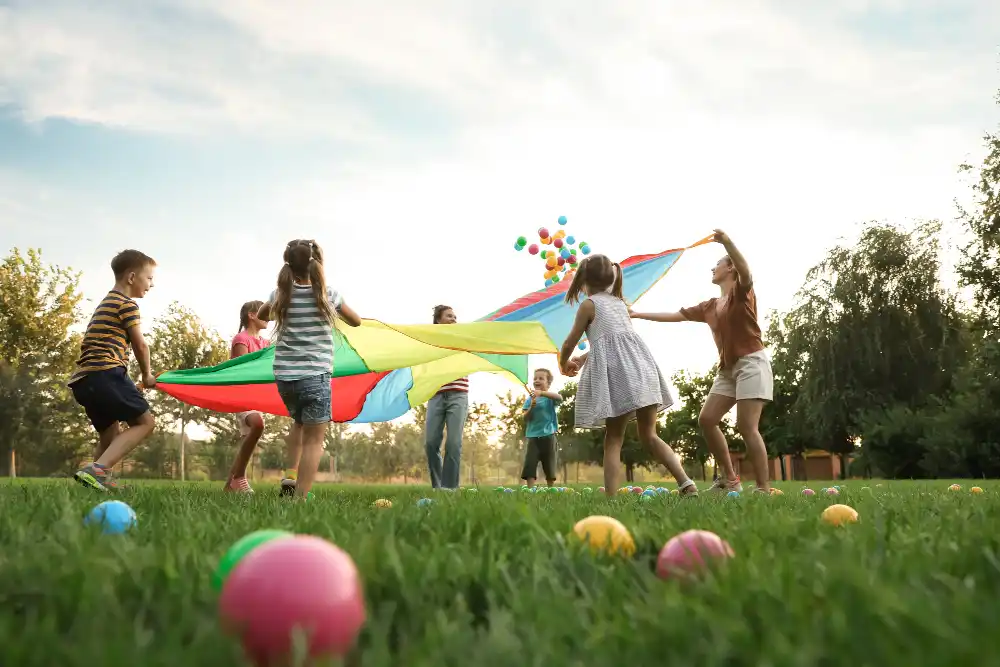Have you ever witnessed the sheer joy on a child’s face as they run, play, and explore their surroundings? That’s the magic of physical activity in early childhood. It’s not just about keeping them busy. It’s a critical part of their development that shapes their health, skills, and happiness.
Think about it: every hop, skip, and jump is a step toward a healthier and brighter future. In a world where digital distractions are the norm, ensuring your little ones stay active is more crucial than ever. Let’s explore why physical activity is so important and how to make it a fun part of a child’s daily life.
Physical Activity Sets The Foundation For Lifelong Health
Physical activity in early childhood isn’t just a way to expend energy. It’s a cornerstone of lifelong health and well-being.
When you introduce your child to an active lifestyle early on, you’re not just fostering immediate benefits. You’re setting them on a path to long-term wellness. Doing so ensures their current well-being and instills habits that can last a lifetime.
As a parent or caregiver, your role in promoting and participating in these activities is invaluable. A child who learns to embrace physical activity early on is more likely to continue these healthy practices into adulthood.
This early introduction is a gift that keeps on giving, laying the groundwork for a healthier, more active future.
Developing Motor Skills Through Active Play
Developing motor skills in children is crucial, and active play is the key to unlocking this aspect of their growth.
Imagine your child in a space like the preschool program Belmore, where every jump, hop, and skip is a step toward mastering essential physical abilities. This active engagement is more than a child’s play. It’s a structured approach that enhances their coordination, balance, and agility.
Through climbing, running, and interactive games, they learn to navigate and interact with their environment more effectively. These activities, tailored to their developmental stage, ensure they build a strong foundation for future physical activities while having fun.
Enhancing Cognitive Function And Academic Success
Engaging in regular physical activity isn’t merely a means of expending energy. It serves as a vital catalyst for cognitive development.
Studies consistently reveal a positive correlation between physical activity and improved brain function in children. This includes enhanced memory, better concentration, and even superior problem-solving skills. As a parent, you’re not just facilitating playtime but nurturing your child’s intellectual growth.
Incorporating physical activity into their daily routine can significantly boost their academic performance, setting them up for success in both the classroom and beyond.
Nurturing Social And Emotional Development
Children who participate in physical activities with others learn to work together towards a common goal, developing the ability to cooperate and share. They learn to listen to others, compromise, and support their teammates.
Additionally, children develop self-confidence through active play. They learn to believe in their abilities and appreciate their contributions to the group. As a result, they foster a positive outlook on themselves and others, laying the foundation for healthy emotional well-being.
Furthermore, physical activity provides opportunities for children to socialize and make friends. As they play together, they learn to communicate, empathize, and respect each other. These positive interactions can help to build strong relationships that can last a lifetime.
Incorporating Physical Activity Into A Child’s Routine
To ensure that physical activity is an integral part of your child’s daily routine, you can implement various strategies. It is crucial to create a supportive environment that encourages and entices children to engage in movement and play.
- Encourage Unstructured Outdoor Play: Allow children to explore their surroundings, climb trees, run around, and engage in imaginative play. These unstructured activities allow for creativity, social interaction, and the development of gross motor skills.
- Enroll Children In Organized Sports And Activities: Introduce children to various sports, dance classes, or martial arts. Structured activities provide opportunities for social interaction, skill development, and team spirit.
- Engage In Family Activities: Make physical activity a family affair by going for walks, hikes, or bike rides together. Play frisbee, soccer, or other games in the park. These shared experiences create lasting memories and strengthen family bonds.
Incorporating these strategies into your child’s daily routine can foster a love for physical activity that will provide lifelong benefits.
Final Words
The importance of physical activity in early childhood cannot be overstated. By providing children with ample opportunities for movement and play, we can set them on a path toward a healthy, well-rounded life.
Physical activity not only promotes physical development but also enhances cognitive, social, and emotional growth, preparing children for future success in all aspects of life. Nurture your child’s love for movement and watch them blossom into a healthy, confident, and well-adjusted individual.



